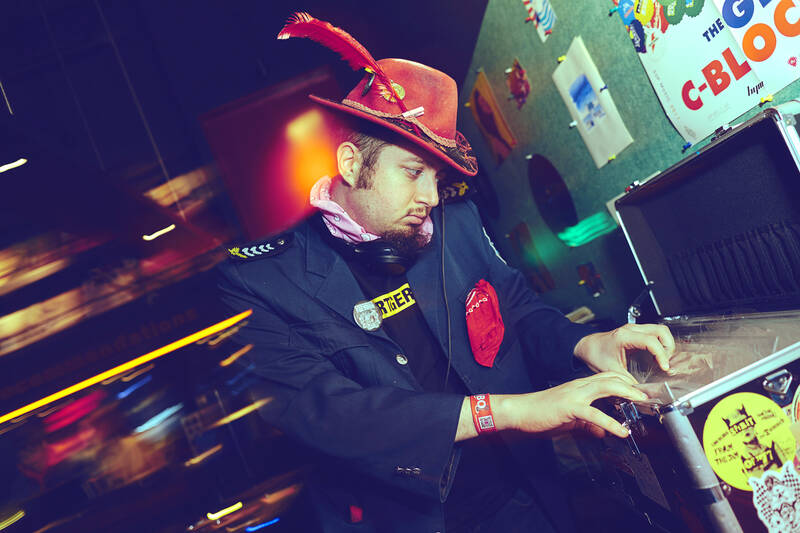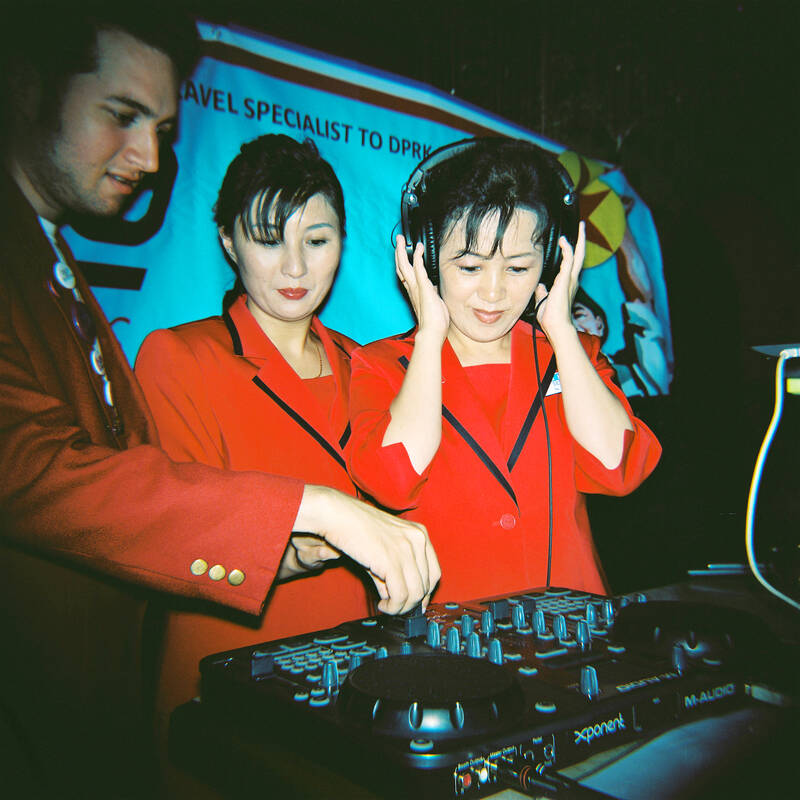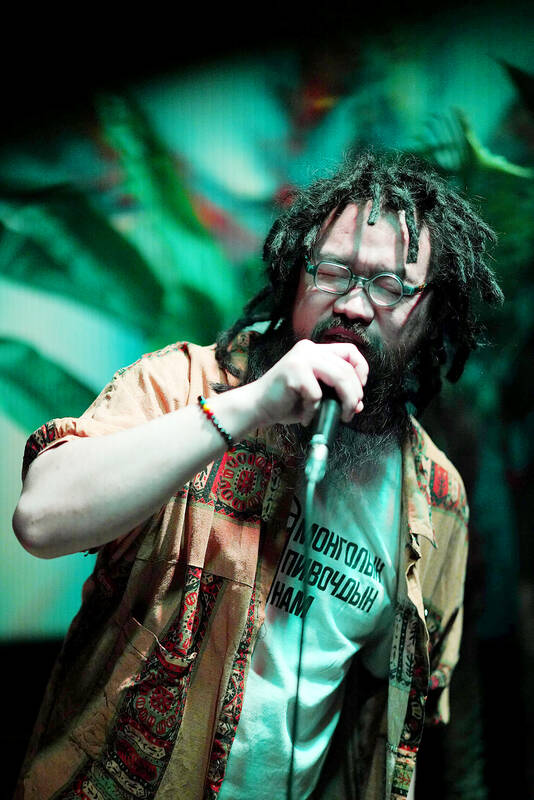In 2012, American Brian Offenther, who goes under the performer name DJ Bo, became the first ever foreign DJ to perform inside North Korea. In the karaoke room of Pyongyang’s Koryo Hotel, he plugged in his DJ controller and played songs by Maroon 5, Chuck Berry and the Village People for about a hundred foreigners and North Koreans. Though he initially received a frosty reception, the room gradually transformed into a dance floor.
Offenther later told Vice Magazine that the North Koreans “were either really scared, or just really curious.” But over the course of the night, the foreigners goaded their local hosts and minders to dance. In the end, “I wouldn’t say that the night reached a point of ecstasy, but I do feel like I cracked the door in some small way,” Offenther told Vice.
Since that time, Offenther, now 40 and based in Shanghai since 2010, has made a career of pushing the frontiers of DJ touring in Asia. Playing music in hole-in-the-wall bars, jungle huts, and other underground backwaters, he’s now DJed in every country in East and Southeast Asia (including Brunei, Myanmar and East Timor), and 49 cities in China including 33 of China’s 34 political regions.

Photo courtesy of Brian Offenther
(For this China total, he does not include Taiwan, and says the final “x” he hopes to place on China’s map is Xinjiang. He now has a gig planned and is waiting to see if it will come through.)
From March 4 to March 9, DJ Bo will tour Taiwan for the third time with gigs in Taipei and Taichung. These will include a New Orleans Mardi Gras vinyl set on Fat Tuesday at Taipei’s Vinyl Decision, a “Got Soul” night at 23 Music Room on Mar 6, and a reggae, dub, dancehall jam with Formosa Sound System at LNY Pizza Dunnan shop (小紐約敦南店B1) on Mar 7. He’ll be joined at various gigs by Japanese vinyl DJ Hyassen, Canadian-Singaporean rapper Masia One, and Mongolian reggae singer Jiijah, as well as locally based horn players Macgregor Wooley and Andy Francis from the groove band The Infrasounds.
MANY HATS

Photo courtesy of Abe Deyo
A native of south Florida — Offenther looks back on it as a “suburban hell” — his mother was a dancer and he played in punk bands as an undergraduate at the University of Florida. During the tail end of his senior year, he enlisted in the Peace Corps, and the organization dispatched him to Asia just weeks after his 2007 graduation. Though he hoped for a posting in South America, the Washington DC based organization sent him to Darkhan, Mongolia instead.
“Only about half of the Peace Corps Mongolian people make it through,” he said, speaking via video link from his home in Shanghai. “I did.”
In Darkhan, Offenther managed to team up with a Mongolian Elvis impersonator, and upon completing his two-year term, moved to the Mongolian capital, Ulaanbaatar. There, he opened a bar called the Cross-Eyed Gypsy and appeared on Mongolia’s BTV television network as a news anchor.

Photo courtesy of Brian Offenther
But after a year, “I got sick of the -40 degree Celsius winters. And there were also a lot of anti-foreigner issues. One time, I got beat up pretty bad,” he said.
Offenther returned briefly to Florida, where he worked as a dancer and an emcee at bar mitzvahs, quinceaneras (a debutant-type celebration for Latinos), and corporate events.
But after just six months stateside, he returned to Asia, this time to Shanghai. There he has built a life as a DJ, though one based on perpetual hustle and the wearing of many hats: DJ, promoter, curator, writer, editor. (“Just to be clear,” he said, “I don’t teach, at least anymore.”)
As a promoter, Offenther has helped organize China concerts for hip hop legend Afrika Islam, LA punk band TSOL, “the Indonesian Prince of Ska” Denny Frust, and Japanese rockabilly band the 5, 6, 7, 8s. He also says he organized China’s first Elvis festival.
There have also been one-off, niche-interest projects. In 2019, he served as A&R for Spin Presents Indie Asia, a compilation album of independent music around Asia. At the moment, he is working on a photobook on Canton Disco, a seminal 1980s Hong Kong night club, and also what he calls “the biggest ska festival in the history of mainland China,” a two-day event planned for this fall in Hangzhou.
ECLECTIC SETS
Billing himself as DJ Bo, “Shanghai’s number two DJ,” the music he plays in DJ sets is eclectic in both genre and geographical scope.
“My favorite sets to do are called Border Breaks International Funky Sounds, which is music from places that I’ve been to, that I’ve picked up in local markets. A lot of it’s very funk-based,” he said.
Of the roughly 200 gigs Offenther DJed last year, he said about half were spinning vinyl, though he is not a die-hard purist.
“If you want to spin Laotian music or Cambodian hip-hop, you gotta do digital.”
His greater mission — though he does not call it a “mission” per se — is “being on the ground and meeting the people. So it becomes a snowball sort of effect that I go to the places, and then it kind of becomes part of my story, you know?”
‘YELLOWWASHING’
Navigating Chinese government restrictions and finding ways into heavily controlled areas is a perpetual issue. As we talk, he mentions that on the previous evening — Feb. 12 — Chinese police raided and then shut down a heavy metal DJ night for no apparent reason in Beijing where he was performing. “Planned and canceled” is the normal situation of China’s music scene, he said.
“Late last year, I was finally able to knock out Jilin, which is in the northeast, and which, for some reason, and no one’s really quite sure, has very strict rules on who can perform there.”
In 2023 and last year, he also made his first and second DJing trips to Tibet.
“If you want to visit Tibet, you have to do it through a tour agency,” he said.
For his initial visit of 2023, he paid his own way, stayed in a tourist hotel in Lhasa, and followed his “guide” — who also served as a minder — to temples everyday. “And then I would kind of sneak away in the evenings.”
Through connections, he was able to arrange a one-night gig in the “music restaurant” called Zhi — “I guess it could be called a pub situation,” he said.
The patrons were predominantly Han, and he believed many of them were in government. There were also some Tibetans, who he believed to be in good political standing.
“It’s obvious that they are Han-ifying the whole situation there, just like they are in Hong Kong. I call it yellowwashing,” he said.
Offenther’s first DJ set in Lhasa was such a success that the communist canteen flew him back again last year for a week-long residency. This time, he DJed every night but was also able to connect with the local Tibetan artist community during the day, he said.
Creatively, he says, “To me, DJing is artisanal, so it’s not completely artistic. I want to be able to express myself through that form. And also by digging [for rare music].”
“It bothers me that hip-hop DJs in Los Angeles and New York and London and in Shanghai might DJ the exact same sets. If you’re doing that, you’re not really expressing yourself with any sort of voice.”
“I like to be my own curator.”

That US assistance was a model for Taiwan’s spectacular development success was early recognized by policymakers and analysts. In a report to the US Congress for the fiscal year 1962, former President John F. Kennedy noted Taiwan’s “rapid economic growth,” was “producing a substantial net gain in living.” Kennedy had a stake in Taiwan’s achievements and the US’ official development assistance (ODA) in general: In September 1961, his entreaty to make the 1960s a “decade of development,” and an accompanying proposal for dedicated legislation to this end, had been formalized by congressional passage of the Foreign Assistance Act. Two

Despite the intense sunshine, we were hardly breaking a sweat as we cruised along the flat, dedicated bike lane, well protected from the heat by a canopy of trees. The electric assist on the bikes likely made a difference, too. Far removed from the bustle and noise of the Taichung traffic, we admired the serene rural scenery, making our way over rivers, alongside rice paddies and through pear orchards. Our route for the day covered two bike paths that connect in Fengyuan District (豐原) and are best done together. The Hou-Feng Bike Path (后豐鐵馬道) runs southward from Houli District (后里) while the

The Taipei Times last week reported that the Control Yuan said it had been “left with no choice” but to ask the Constitutional Court to rule on the constitutionality of the central government budget, which left it without a budget. Lost in the outrage over the cuts to defense and to the Constitutional Court were the cuts to the Control Yuan, whose operating budget was slashed by 96 percent. It is unable even to pay its utility bills, and in the press conference it convened on the issue, said that its department directors were paying out of pocket for gasoline

On March 13 President William Lai (賴清德) gave a national security speech noting the 20th year since the passing of China’s Anti-Secession Law (反分裂國家法) in March 2005 that laid the legal groundwork for an invasion of Taiwan. That law, and other subsequent ones, are merely political theater created by the Chinese Communist Party (CCP) to have something to point to so they can claim “we have to do it, it is the law.” The president’s speech was somber and said: “By its actions, China already satisfies the definition of a ‘foreign hostile force’ as provided in the Anti-Infiltration Act, which unlike